If you’re hesitant to board a plane these days out of fear for your life, you’re not alone.

Flying can already be nerve-wracking, but when headlines are full of turbulence stories, emergency landings, or “technical issues,” that anxiety gets dialled way up. Even if you logically know flying is safe, your brain might not be so easily convinced. The good news is, there are ways to stay calm, even when the news makes it sound like every plane is falling out of the sky. Here are some simple ways to keep your head straight when flying feels extra stressful.
1. Remind yourself how rare incidents actually are.
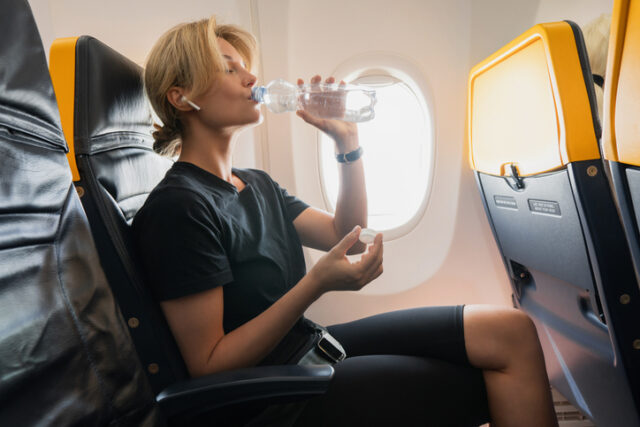
Headlines are designed to grab your attention, and aviation stories always make waves, but they’re usually rare, isolated events. Statistically, flying is still one of the safest ways to travel, with strict safety checks, trained professionals, and layers of backup systems.
Try to zoom out from the emotional pull of a single news story and remember the bigger picture: thousands of flights take off and land safely every single day without anyone noticing. You just don’t see those in the headlines.
2. Avoid reading flight-related news before your trip.
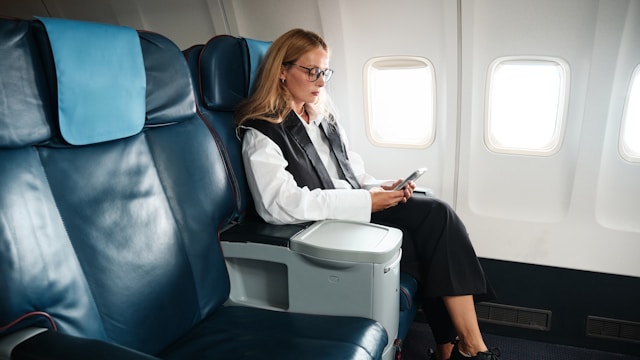
Scrolling through stories about in-flight issues the night before your flight is basically asking your brain to spiral. It’s tempting to “be informed,” but the reality is that it just feeds your anxiety without making you any safer or more prepared. Instead, distract yourself with something calming or even boring. Think packing playlists, travel blogs, or a good book. You don’t need a crash course in aviation drama to get from point A to point B.
3. Learn a little about turbulence.

Turbulence feels scary, but it’s a normal—and harmless—part of flying. Planes are built to handle it. Pilots are trained for it. And while your stomach might do a flip, the plane isn’t in danger just because it’s shaking a bit. Understanding that turbulence isn’t a sign of something going wrong can genuinely help you stay grounded mentally. It’s uncomfortable, sure, but it’s not a red flag. It’s just part of the ride.
4. Choose a seat that helps you feel more at ease.
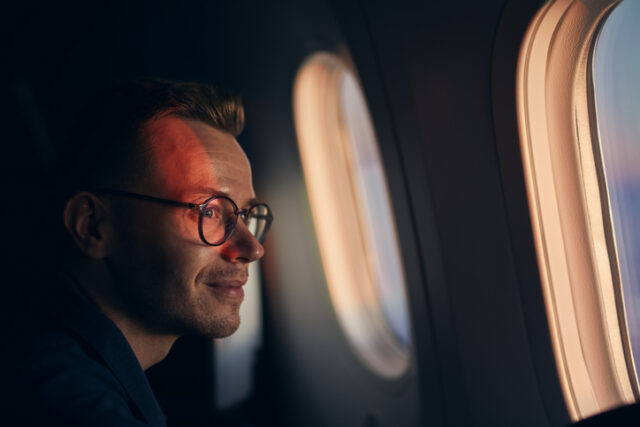
If you know you’re a nervous flyer, pick a seat that gives you a bit more control over your comfort. Sitting over the wing often means less turbulence, while aisle seats can help if you’re claustrophobic or need frequent breaks to stretch. Even small things like being able to get up without climbing over strangers can make the flight feel less suffocating. It’s not just about where you sit; it’s about making things feel slightly more manageable from the start.
5. Bring distractions that genuinely hold your attention.
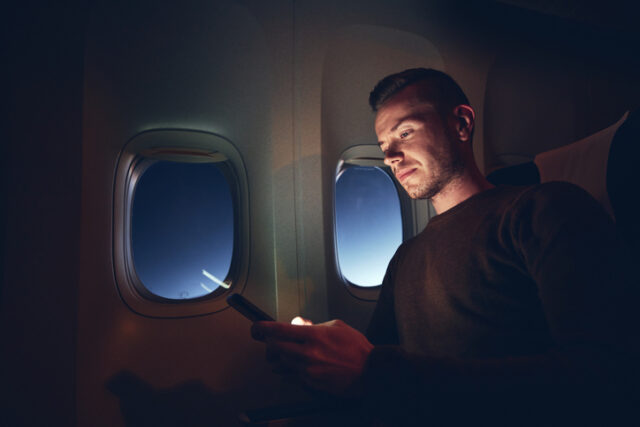
Idle time is the enemy of anxious thoughts. Load your phone with podcasts, movies, or playlists that fully grab your focus—not background noise, but stuff you actually enjoy and want to get lost in. Having something to zone into can be a lifeline when your thoughts start spiralling. The more engaging the content, the less mental space you leave for panic to creep in.
6. Practise deep breathing before and during takeoff.
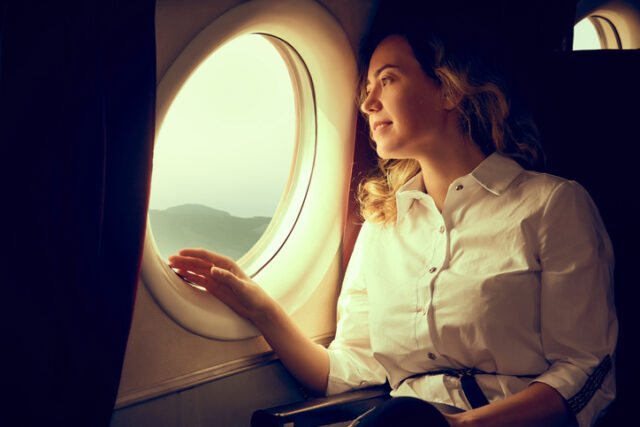
One of the most intense parts of flying for anxious people is takeoff—it’s loud, fast, and feels physically intense. Deep breathing, especially in a slow and steady rhythm, helps regulate your nervous system in real time. Inhale for four counts, hold for four, exhale for six. Repeat that process until your shoulders start to drop. You can even practise this before flying so it kicks in more naturally when you’re on the plane.
7. Acknowledge the fear without letting it take over.

You don’t have to pretend you’re not anxious. In fact, trying to fight it can sometimes make it worse. It’s okay to say, “Yep, this makes me nervous,” and then focus on what you can control, like breathing, posture, and staying hydrated. Anxiety is a response, not a prediction. Just because your body feels tense doesn’t mean danger is actually present. Letting the feeling pass through you without gripping onto it can make all the difference.
8. Talk to the crew if you need reassurance.

Flight attendants have seen it all — and they’re usually happy to explain things or give you a heads-up if something’s totally normal (like a noise or bump) but might feel weird. They’re trained to spot nervous flyers and can be really calming. Sometimes just hearing, “This is nothing unusual,” from someone who does this every day is enough to take the edge off. You don’t have to sit in silence pretending you’re fine if you’re not.
9. Avoid caffeine and alcohol before flying.

Caffeine might seem like a good idea to stay alert, but it can ramp up anxiety and make you feel jittery, especially when your nerves are already on edge. Alcohol, on the other hand, can mess with your blood sugar and make you feel worse mid-flight. Sticking to water or herbal tea might sound boring, but it’ll keep your body feeling steadier. The goal is calm and balanced, not wired and dehydrated.
10. Remind yourself why you’re flying.

Whether it’s a holiday, a reunion, or just getting back home, focus on the why. The plane is a temporary discomfort that gets you to something worth looking forward to. Keeping that end goal in mind helps pull your mindset away from fear and toward purpose. It’s easy to let the anxiety overshadow the whole journey, but zooming out to remember the big picture can help reset your thinking. You’re not flying to suffer—you’re flying to live a fuller life.




